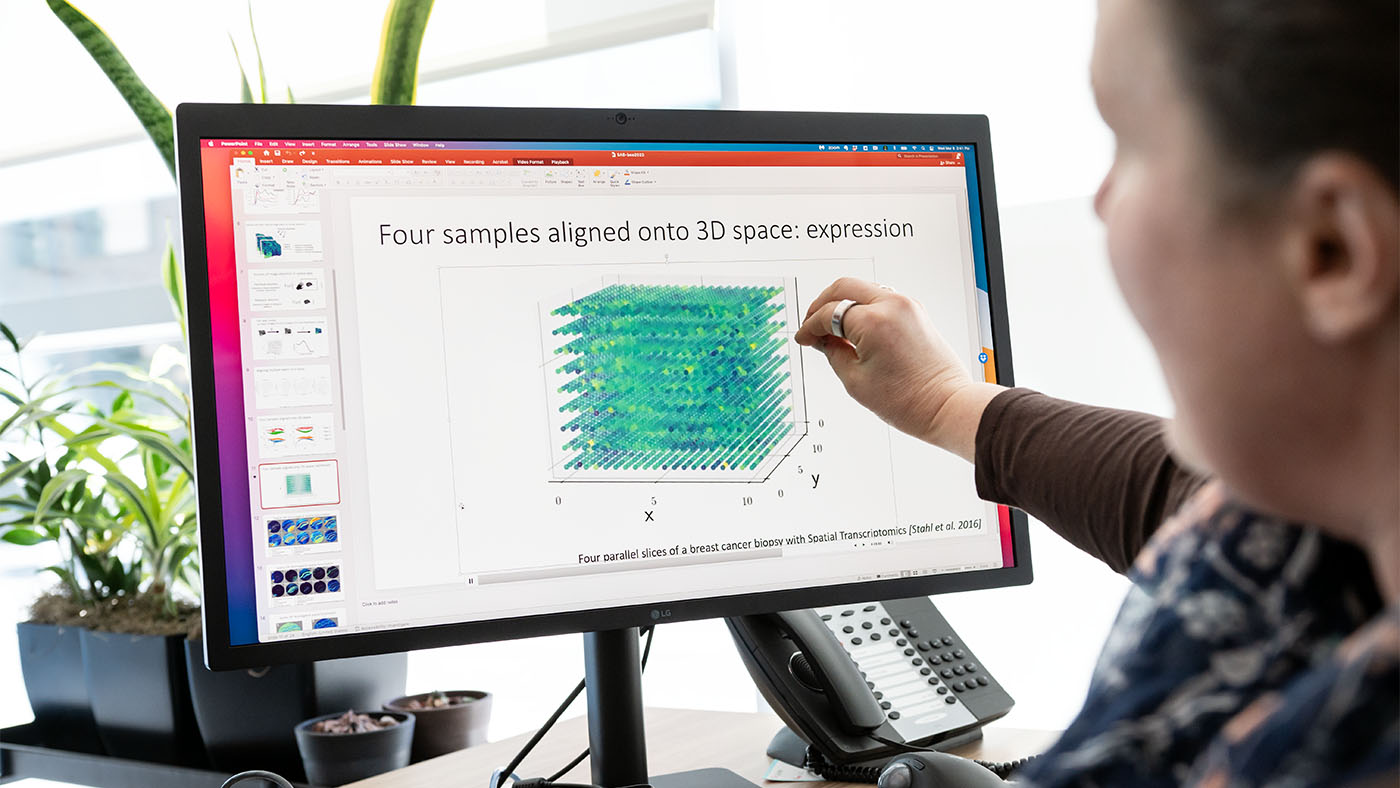The Biswas Center for Transformative Computational Cancer Biology fuses powerful machine learning with cutting-edge experimental technologies to identify and prioritize research avenues that are most likely to lead to success in the areas of cancer diagnosis and treatment.

Gladstone’s Biswas Center for Transformative Computational Cancer Biology, established in 2024 with a grant from the Biswas Family Foundation, closely couples machine learning and experimentation to shed light on promising areas for cancer diagnosis and treatment.
In the area of molecular mechanisms, the center’s suite of deep learning models is capable of performing trillions of genome editing experiments on the computer to generate and rank testable hypotheses about how changing a cell’s DNA will alter its function and interactions with other cells. Focused initially on colorectal and skin cancers, the group hopes to identify genetic mechanisms overlooked by other researchers and to develop a predictive understanding of how DNA changes lead to different subtypes of cancer, enabling personalized cancer diagnoses.
Towards precision immunotherapy, the team is using machine learning models to accelerate T-cell engineering. By decoding which genes enhance the ability of T-cells to target and kill cancer cells in live imaging and spatial transcriptomics data, the center is overcoming the challenge of building better immunotherapies for individual patients.
Importantly, the program is designed to apply equal research emphasis across common and rare cancer pathways and diverse genetic ancestries, which should generate much-needed information in these understudied areas. Technologies emerging from the Biswas Center for Transformative Computational Cancer Biology will be freely shared, with the goal of fueling a global acceleration of cancer biology research and the development of therapies specialized to each type of cancer mechanism. While the primary focus is cancer biology, the center has potential to advance medicine in many areas.
Scientific Areas of Focus
- Computational Biology
- Machine Learning
- Cancer Biology
- Immunotherapy
- Genomics
Project Leader
Members
Barbara Engelhardt, PhD
Ryan Corces, PhD
Catherine Tcheandjieu Gueliatcha, DVM, PhD
Alex Marson, MD, PhD
Karin Pelka, PhD
Vijay Ramani, PhD
Christina Theodoris, MD, PhD
Seth Shipman, PhD

